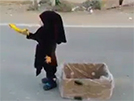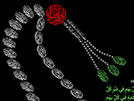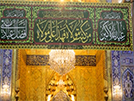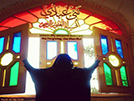What is Tawba of Nasūh?
- Details
- Hits: 2700
What is Tawba of Nasūh?
Allamah Majlisi, in Sharhe Kāfi, quotes the commentators about meaning of Tawbatan Nasūh:
1. To repent purely and piously in the presence of the Lord. Repentance should not merely be due to a desire of Paradise and fear of Hell, it should be due to a feeling of shame and remorse for not obeying Allah’s commands. Tusi (r.a.) writes in Tajrīd al-Kalam.. “It is not Tawba to worry about sins for fear of Hell.”
2. The Tawba should be such that it may serve as a lesson even to others. A person should repent with such sincerity and such persistence that by observing his repentance other sinners may also be inclined towards Tawba. In this way he also becomes a means of guidance for others.
3. Nasīhat (admonition) or advice is like sewing. So the clothing of religion which was torn into pieces because of sins can be stitched by the threads of Tawba. Such repentant people are also called Awliyaullah (Friends of Allah).
4. He should give Nasīhat (admonition) to himself so thoroughly and honestly and perform such a Tawba that all soot of sins may vanish from the walls of his heart. His worship should be so intense that the radiance of Faith removes the darkness of sins totally. He must be so involved in performing good deeds that his bad deeds are fully compensated for.
A great religious scholar says: It is not enough to do Tawba, which would effect only a superficial cleansing of the soul. His worship to Allah (S.w.T.) should be to such an extent and his obedience to Allah (S.w.T.) is implicit, such that his sins are totally obliterated, and his heart and soul is purified with a thorough cleansing. The more his worship the purer will be his heart. A repentant must necessarily look at his past so that each and every sin can be repented for. For instance, if he had enjoyed nonsense songs and maddening music in a dance party he should now pay more and more attention to the recitation of Qur’an, Hadith, religious discourses, sermons etc.
He should regularly recite the holy Qur’an. It must be remembered that the letters (text) of the holy Qur’an must not be touched in a state of impurity. If he had entered a mosque in a state of impurity, he should now sit in Ihtikaf in the Masjid by way of compensation. If he had viewed prohibited scenes earlier now he must try his best to see more and more those things, the seeing of which draws Divine Reward like the text of the holy Qur’an, faces of one’s parents, company of good and pious people. Similarly he should look at the signs of God’s Might and draw wisdom from it. After doing Tawba he must give people their rights. He should spend the better portion of his wealth in the path of Allah (S.w.T.) on the poor and needy. If he has backbited a faithful he must compensate for it by praising his good points. In short, he must try and make up for his misdeeds in whatever manner possible and to whatever extent possible.











